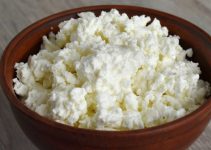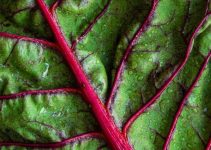The proper functioning of the digestive system is essential for human health.
To have a healthy digestive system is essential to consume foods rich in fiber and probiotics.
Below you will find a list of foods for good digestion that promote the proper functioning of the digestive system.
Why is Digestion Important?
Digestion is the process of breaking down food into smaller pieces to be absorbed by the body. Digestion is essential because it helps us retain more nutrients, which can lead to better health.
You’ve probably heard the saying “You are what you eat” before, and it is true, and it’s crucial to make sure that your food is digesting properly.
Good digestion means that your body is getting all of the nutrients it needs to function correctly.
When it comes to digestion, your body needs a good amount of fiber to help you stay regular. Thus, it will help with weight loss and keeping your digestive tract healthy.
Foods For Good Digestion
1. Yogurt

Yogurt contains probiotics, healthy bacteria that live in the digestive tract and improve intestinal health.
Although probiotics live naturally in the intestine, the consumption of yogurt increases its quantity and improves digestion.
Among the main benefits of probiotics are reducing bloating, diarrhea, constipation, and better lactose and milk sugar absorption.
2. Apples

Apples contain a soluble fiber called pectin.
It is derived from digestion in the small intestine and is then degraded by the flora of the colon.
In addition, it improves the elimination of feces and fights digestive problems such as constipation and diarrhea. It has even been shown to help reduce intestinal infections.
3. Pineapple

Pineapple is an excellent fruit for digestion because of its enzyme content.
Bromelain, an enzyme found in pineapple, is a powerful digestive aid that helps break down proteins.
Bromelain has been shown to be effective against some intestinal pathogens, decreasing diarrhea and other digestive manifestations.
4. Fennel

Fennel contains fibers that promote the proper functioning of the digestive system.
It also contains antispasmodics that help reduce problems such as abdominal bloating, intestinal cramps, and flatulence.
5. Kefir

Kefir contains probiotics that promote the digestion of lactose, thus improving the symptoms of lactose intolerance such as bloating, flatulence and stomach aches.
According to various studies, kefir is beneficial because it increases the levels of good bacteria while reducing the levels of harmful bacteria in the intestine.
6. Chia seeds

Chia seeds provide large amounts of fibers, which turn into a gelatinous substance inside the digestive tract.
In addition to promoting bowel movements, it also increases the levels of friendly bacteria.
7. Papaya

Papaya contains an enzyme called papain that helps break down protein fibers, thus improving the digestive process by promoting protein absorption.
In addition, papain improves irritable bowel symptoms such as bloating and constipation.
8. Kombucha

Kombucha is a tea prepared from fermentation of a strain of bacteria, sugar, yeast, and green or black tea.
It provides us with probiotics that improve digestion.
Studies carried out on rodents have shown that kombucha helps heal stomach ulcers.
9. Whole grains

Whole grains are those that are composed of 100% of the kernel.
These grains contain many fibers that help reduce constipation and increase friendly bacteria in the intestine.
10. Dark Green Vegetables

Green leafy vegetables provide us with fibers that increase the volume of stool, accelerating the digestive process.
In addition, green leafy vegetables provide us with magnesium, a mineral that fights constipation by improving muscle contractions in the gastrointestinal tract.
According to a study, green leafy vegetables have sugar that feeds the friendly bacteria in the colon.
11. Beets

One cup of beets contains 3.4 grams of fiber.
Fibers are beneficial for the digestive system because they increase stool bulk and improve levels of friendly bacteria in the gut.
12. Ginger

Ginger is a food widely used as a natural medicine to improve digestion and combat nausea. In fact, many pregnant women use it for this purpose.
In addition, ginger is beneficial because it helps speed up the emptying of the stomach, which is also helpful in preventing stomach discomfort.
13. Kimchi

Like all other fermented foods, kimchi also improves gut health by increasing the levels of friendly bacteria in the colon.
It is noteworthy that the longer it is allowed to ferment, the more probiotics it produces.
14. Natto

Natto is a fermented food that fights toxins and harmful bacteria in the intestine. In addition, it improves the health of intestinal flora.
In fact, a gram of natto contains as many probiotics as a serving of other fermented foods.
15. Sauerkraut

According to research, half a cup of sauerkraut contains 28 different strains of bacteria that help improve intestinal flora.
In addition, it helps digest the nutrients in food.
16. Salmon

Salmon provides us with omega-3 fatty acids that reduce inflammation, one of the main symptoms of irritable bowel syndrome.
In addition, the fatty acids omega-3 also promote the proper functioning of the digestive process.
17. Bone Broth

The bone broth contains gelatin composed of amino acids that bind to the liquids of the digestive process and favor the good digestion of food.
Its amino acids have been shown to improve the functioning of the intestinal wall and combat digestive problems.
Bone broth is an excellent food for good digestion.
18. Peppermint

Peppermint contains an oil called menthol that reduces the symptoms of irritable bowel syndrome, such as bloating and constipation.
Menthol has a relaxing effect on the muscles, which improves the digestive process.
19. Tempeh

Tempeh is a food made from fermented soybeans.
During the fermentation process, an antinutrient in soy called phytic acid is broken down, interfering with the absorption of certain nutrients.
In addition, being a fermented food, tempeh improves the absorption of nutrients and is a rich source of probiotics.
According to research, probiotics help fight the symptoms of irritable bowel syndrome.
20. Miso

Miso is a fermented food that also provides us with large amounts of probiotics, which help improve the health of the intestine.
In addition, probiotics help solve digestive problems such as diarrhea.





